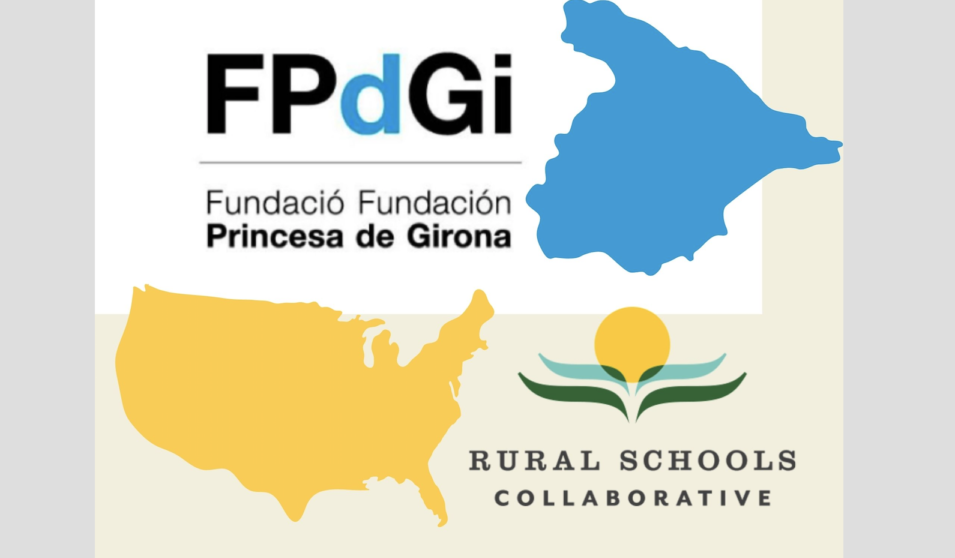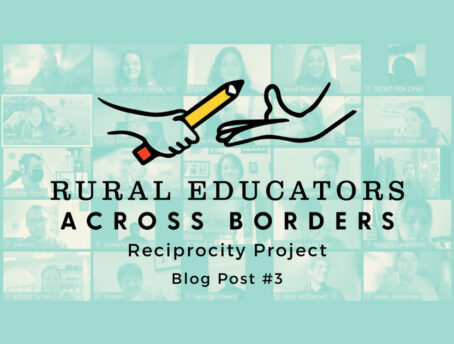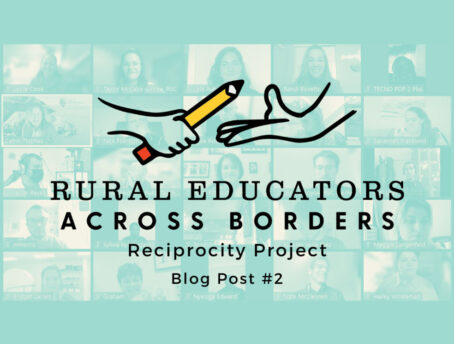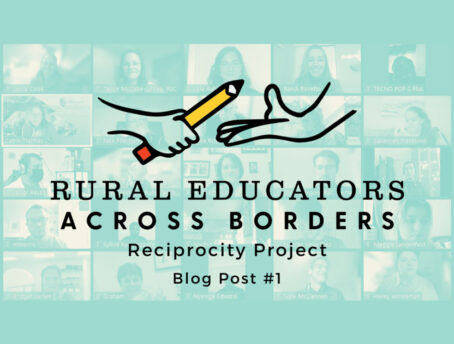Training passionate and engaged rural educators is just as important for many nations around the world as it is here in the United States. Globally, teachers and organizations are joining forces to raise our collective awareness of rural education. Rural Schools Collaborative began a project of connecting educators from different nations to collaborate and share experiences, beginning with teacher-to-teacher exchange between the United States and Wales.
Recently, Rural Schools Collaborative has had the great honor of cultivating a new partnership with the Princess of Girona Foundation (Fundació Fundación Princesa de Girona, FPdGi) in Girona, Spain, with the intention of expanding this global network of rural teachers. Since its founding, FPdGi has advocated for the personal development of young professionals, and beginning in 2015 they entered the education sphere to support efforts and individuals seeking “educational transformation,” particularly in rural areas. Aspiring to elevate the good work of rural schools and teachers, the Foundation launched Teacher Generation, a professional development program for future teachers. Each year, 30 applicants are placed in rural schools to gain skills and experience in becoming “transformative teachers.”
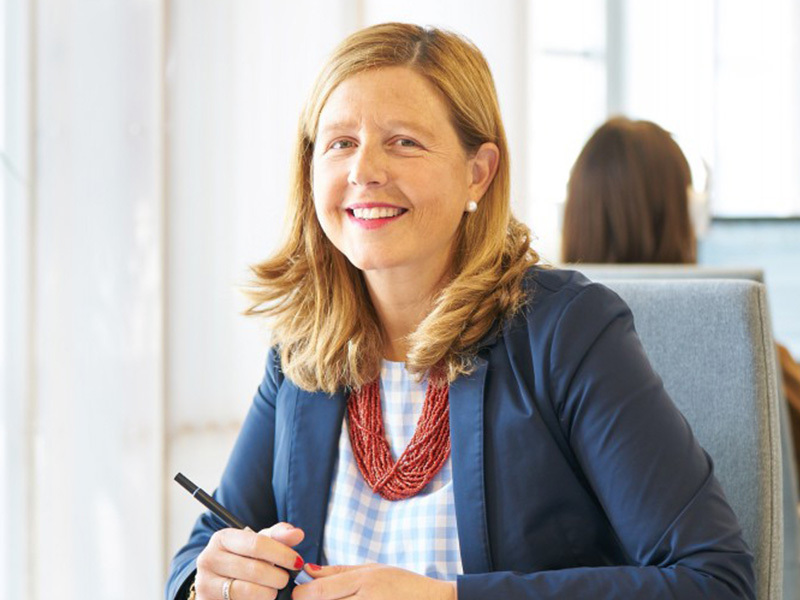
Sandra Camós, Head of Educational Projects for FPdGi, explains that the program “takes students [in] university, who have to do practical experiences annually, and provides them four months of innovative training in rural schools.” The Foundation elected to pursue rural schools, she continues, “because there is a lack of focus on rural in university programs. We want to give students visibility of rural places and schools. Through this program, students have discovered how great rural schools are, and many now want to [become] rural teachers.”
Camós invited five participants from the Foundation’s Teacher Generation program to share their stories with RSC about entering the rural sphere. While most of these young educators have never had personal experience with rural schools previously, they all completed their time in the program enthusiastic about the unique opportunities found in rural education.
The Rural Advantage
One theme that frequently guides the reflections of these inspired teachers, is the distinct advantages they feel are foundational to rural schools and education. Amanda Martínez Montañez, a Teacher Generation participant, recalls that while she felt anxious about how rural schools in Spain often mix different grade levels in the same classroom, this was in fact a unique advantage: “I realized that they’re like a big family in which everyone is integrated.” She explains that rural classrooms are naturally integrated with the larger community, and when creating her lesson plans, she used the community as the focus of her instruction:
“I focused on the baker, and the students bought bread and it was a moment in which you [can talk about] everything. There were little moments in which they could learn and they weren’t in the classroom.”
Along with the involvement of the community in the classroom, the teachers noted the crucial role of nature and the garden in their rural schools. Mirian Tejada Sáenz reflects that even before going to her placement:
“I was really excited because I thought it [would be] an opportunity to put children into nature, to be in the environment…For example, our playground is a forest and it was amazing because we went into the forest to teach. We were talking and walking, and the [older] children were even taking care of those who were [younger].”
Nicolás Vega Diez adds that from the moment he arrived at his rural school placement, he only saw advantages. “For me nature is really important, and the principal base of the [educational] structure. The opportunity of teaching kids in a garden, or next to the mountains, is unique to this area.”
For Lola Rubio Alberca, she admits that she didn’t have too many expectations when she joined the program. However, she quickly found that rural schools harbor “a great connection with the community and the environment.” Moreover, because rural schools are integrated from within, among different age groups, as well as with the larger community and ecosystem outside, “rural schools in general have a multidisciplinary approach to things.” All this, Rubio Alberca shares, makes rural schools really special. “The [involvement] of families, the connection with the environment, and everything is ideal [for] innovative educational pedagogy—new things [used practically] to make the school a place for community, learning, and work.”
The Need for Change

All five Teacher Generation participants are deeply impressed by the distinct characteristics which define their rural school placements. Moreover, they recognize that these advantages are opportunities to seek change within the larger education system in Spain. Sheila Salmi El Hichou states that “these schools are so unique and special because they bring [a type of] change that education is looking for.” She explains further, “In rural schools, they use different techniques to get involved with families, their students, and the community. They don’t have all the materials we had in urban schools, so they innovate.”
Building on the advantages they feel are already present in rural areas, Martínez Montañez adds that “the key is the curriculum. It’s about doing projects that integrate the environment and also the community. This [has] been [the] main change of [my] point of view. Integrating the community and the environment, you can really create projects and learn with everything.”
Similarly, Rubio Alberca believes “we should make schools a much more open place and create a learning community where students learn from other students, from teachers, from parents, from volunteers, even from businesses in town.”
Student empowerment and autonomy was a key change for Tejada Sáenz too. She remarks that “it’s important that we give responsibilities to the children and that they see what they’re doing has an impact. I really think that we need to connect what is really happening outside to what is happening inside the classroom.”
“There’s so much that needs to be changed,” Rubio Alberca concludes, “but I know that step-by-step we’re going to make it happen and create a much better educational world and community in Spain, or in the world in general.”

The Power of Young Professionals
Though these five budding teachers are at the beginning of their journey in education, they feel a sense of pride and power in being young professionals. They express how their drive to seek change is a key advantage for realizing their vision for the future: “If we have that enthusiasm and that power, we [shouldn’t] waste time [in using it]. We have to start working hard to raise our profession and to work [toward] those things we really [care for],” Salmi El Hichou asserts.
“I also think it doesn’t depend on age,” Vega Diez contends, “As young teachers, we can connect in another way with students as they can also see we are young, [but] I have met teachers [in their] 50’s or 60’s with lots of motivations, and I call them heroes.”
Likewise for Tejada Sáenz, their age and experience through Teacher Generation are assets for their early career, but she recognizes that there’s much left to learn: “We have these good things [for which] we have this motivation, and [we] want to make changes, but we also have to listen to others and try to implement [their] advice.”
Regardless of age, they agree that to be a teacher, especially in a rural area, is to be a co-creator of local transformation centered on the education system. “We teachers have a great impact on societies,” Rubio Alberca exclaims, “we impact at least 30 to 45 kids a year, and over a professional career of 30 years minimum, that’s a huge impact!”
This interview was collected as part of the RSC’s Rural Educators Across Borders initiative. One of the tenets of place-based education is the connection of local to global, and RSC is pleased to spotlight our international partners through the Rural Education Across Borders extension of the I Am a Rural Teacher Campaign. The goal is to create a digital platform to allow collaboration with and storytelling from rural educator’s stories across the world.

